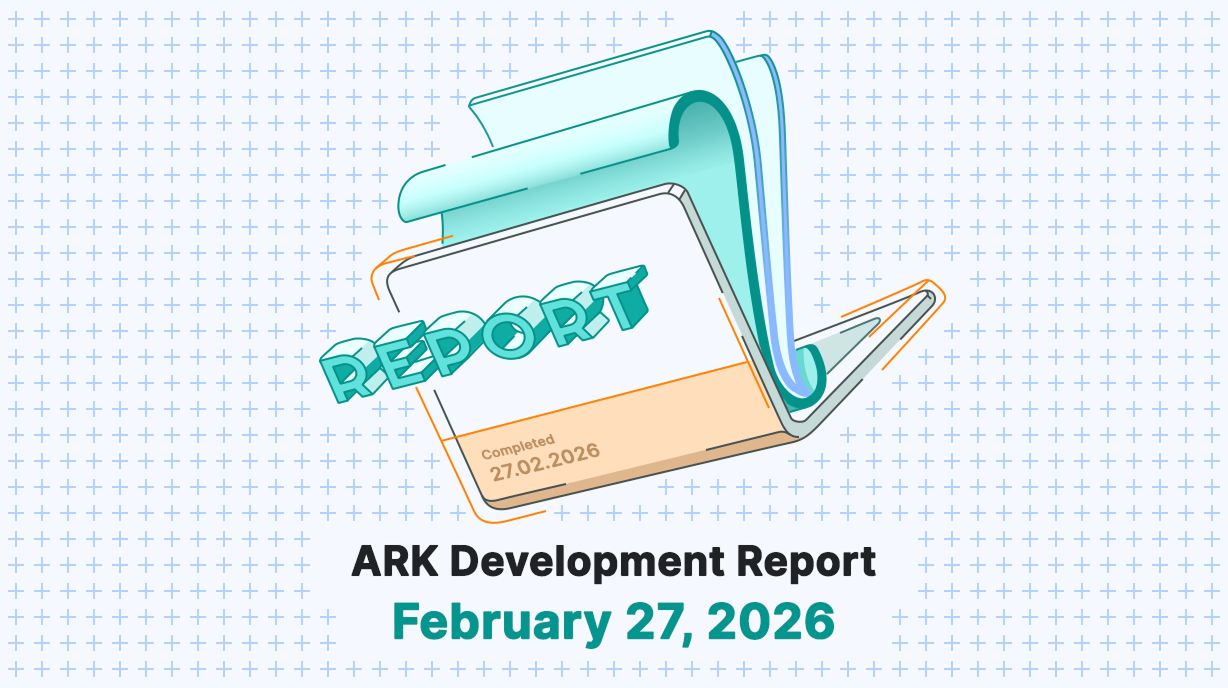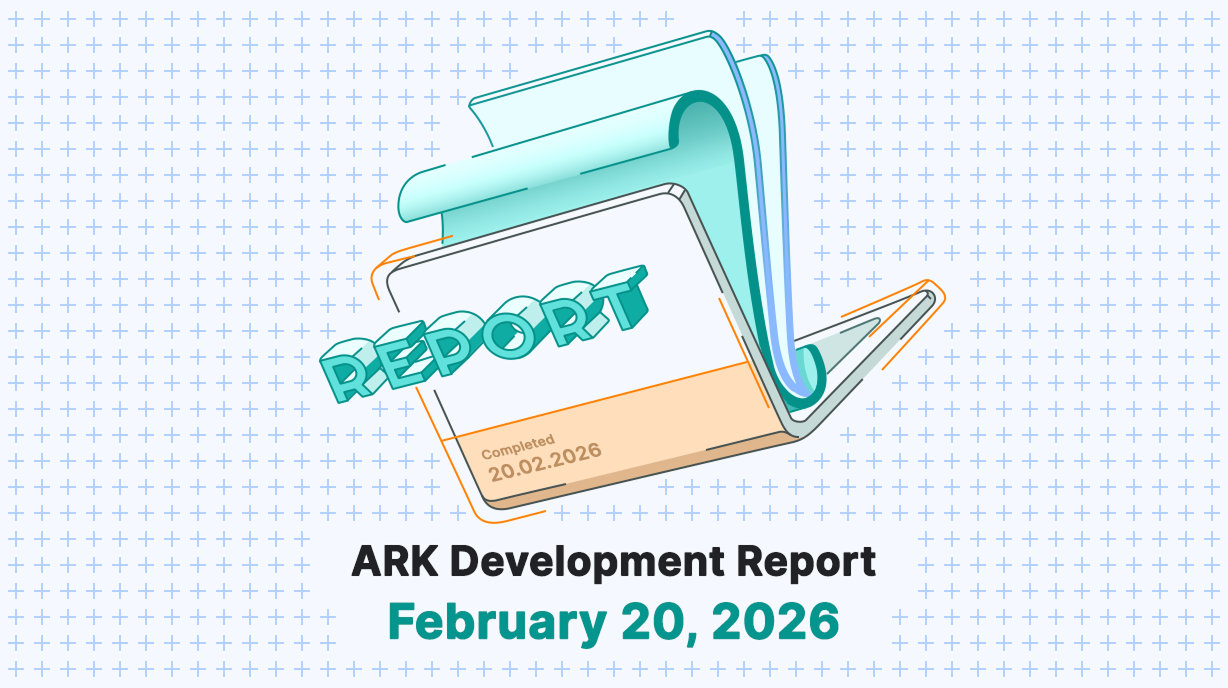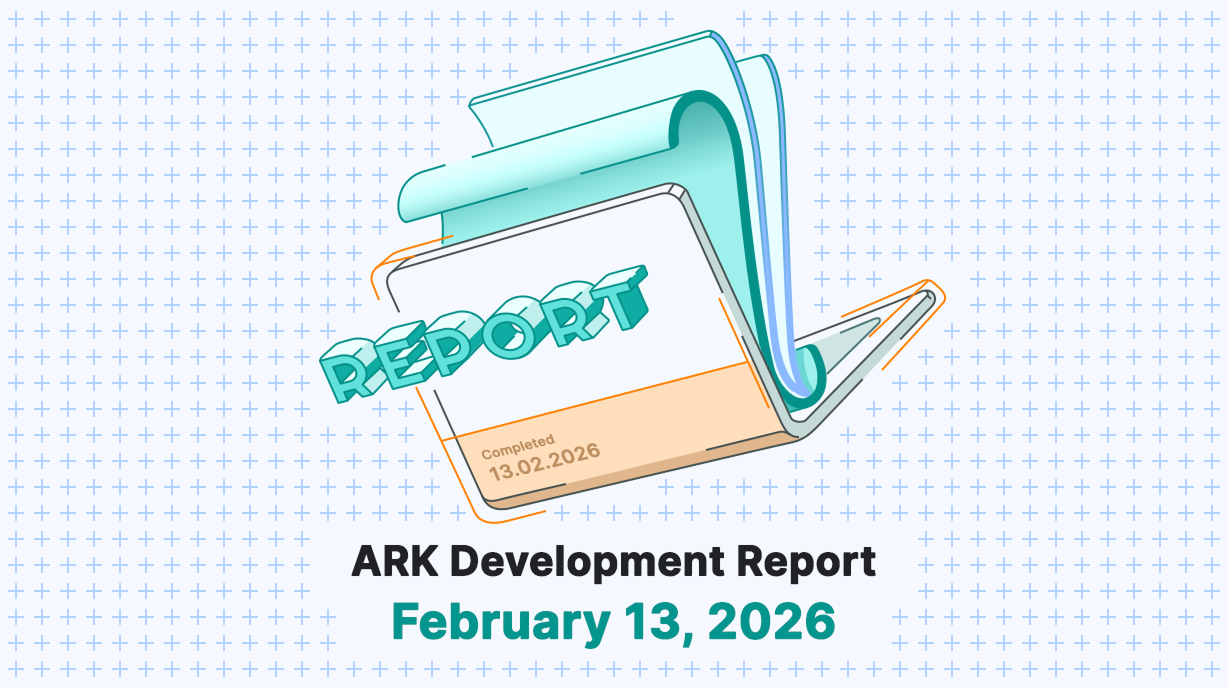ARK is built to utilize a consensus mechanism known as Delegated Proof of Stake (DPoS). While DPoS has been around for quite some time, it has not received the same level of exposure as Proof of Work (PoW) and Proof of Stake (PoS), so we would like to take this opportunity to go over how the delegate system works, some changes we have made to the voting weight calculation, as well as some additional developments that we would like to highlight that show where our thought process is at in regards to delegation and forging.
 DPoS made it’s debut back around 2014 in the Bitshares network. It was created by a group of developers led by Daniel Larimer (you may know him as the co-founder of Steemit). Since the launch of the Bitshares network, there have been several offshoots of the original DPoS consensus model, predominantly Crypti-DPoS, which was later adopted by Lisk and is the same model that will be at the core of the ARK network.
DPoS made it’s debut back around 2014 in the Bitshares network. It was created by a group of developers led by Daniel Larimer (you may know him as the co-founder of Steemit). Since the launch of the Bitshares network, there have been several offshoots of the original DPoS consensus model, predominantly Crypti-DPoS, which was later adopted by Lisk and is the same model that will be at the core of the ARK network.
When thinking about DPoS as a consensus model, it has several major differences when compared to traditional PoW and PoS models. Think of DPoS as a representative democracy wherein individual users utilize their stakes in order to nominate delegates to serve on their behalf. These delegates are then responsible for validating transactions and securing the ARK network. In this representative based system, the delegates are awarded transaction fees and in some instances, such as ARK, inflationary tokens in order to cover operating costs and secure their vested interest in the productivity and safety of the network. Should they perform their duties poorly, or use their authority in a manner not representing the will of the voters, votes may be rescinded and assigned to a new representative, thus ensuring the security of the network.
For the ARK DPoS model, we have made several changes to the core mechanics. One change is the number of users able to be elected to the active delegation. In Crypti-DPoS and in the original Bitshares network, that number of active delegates is 101. In order to maximize efficiency in the network and to continue to offer cutting edge block times and throughput, we will begin with a selection of 51 delegates. The lowering of delegates count, coupled with our routing system and several other core improvements to the way the network communicates, have allowed our team to achieve a stable network at a block time of 8 seconds, and eventually achieve blocks as fast as 5 seconds with additional optimizations.
 One area where we saw room for improvement over the Crypti-DPoS model was in the way in which voting weight was tallied. In Crypti-DPoS and Lisk, voting works in the following manner:
One area where we saw room for improvement over the Crypti-DPoS model was in the way in which voting weight was tallied. In Crypti-DPoS and Lisk, voting works in the following manner:
- User Alex has 100 tokens.
- Alex can vote for 101 Delegates with a weight of 100 tokens assigned to each vote.
- 100 Tokens is a small amount so Alex has very little influence.
- User Kevin has 20 Million tokens and nominates himself to all 101 delegate slots.
- Kevin is a bad whale.
In the above scenario, the security of the network is only as strong as the ability of a single member to outweigh the current voting weight of the top delegates. If the highest delegate voting weight is 8%, then a user would only need to obtain 8.01% voting weight in order to displace the entire delegation. Traditionally, the argument against this has been that obtaining this amount of voting weight would be largely expensive and that a user having just spent a large sum of money on amassing tokens would not want to devalue those tokens by attacking or compromising the network.
From our perspective, we want to minimize that possibility as much as possible while putting more influence back in the hands of the users. That is why we have completely re-written the way in which votes are tallied within our version of DPoS. The following is an example of how voting works in ARK DPoS with 51 active delegates:
- User Alex has 100 tokens.
- Alex can vote for 1 delegate with a weight of 100 tokens assigned to that delegate.
- Alex can also choose to vote for 2 delegates, but each delegate would then only receive 50% of his voting weight.
- As Alex continues to vote for additional delegates, he reduces the weight he contributes to each of the delegates proportional to the number of votes cast.
- User Kevin has 20 million tokens. Kevin can nominate his delegate fairly easily. He may even be able to vote in 2 of his own delegates, but rightfully so, he purchased 20 Million tokens. What he can’t do is be guaranteed to nominate more than 8 delegates before his weight is too diluted to maintain his position.
- Kevin is a contained whale.
This is a much more reasonable manner in which to count votes and maintain the security of the network. By altering the voting mechanism and weight calculations, we have substantially increased the cost of a hostile takeover and reduced the window for an attack to occur.
ARK & Forging Rewards
One additional benefit of the new voting scheme is that it allows even smaller accounts to have influence in the voting system. As every single token casts only 1 vote, every token counts when it comes to being an active delegate. This creates the perfect environment for forging reward pools to form. The members of the ARK Crew not only fully support this idea, but would like to take it one step further.
You can research each delegate by going to community ran website at ARKDelegates.live
Delegates and Proposals
Are you running for a delegate? Make a proposal, set up a delegate node, and join our Slack to test your chances. Don’t be shy, the ARK community is here to help you 24/7.

Website: https://ark.io
Slack: https://ark.io/slack




